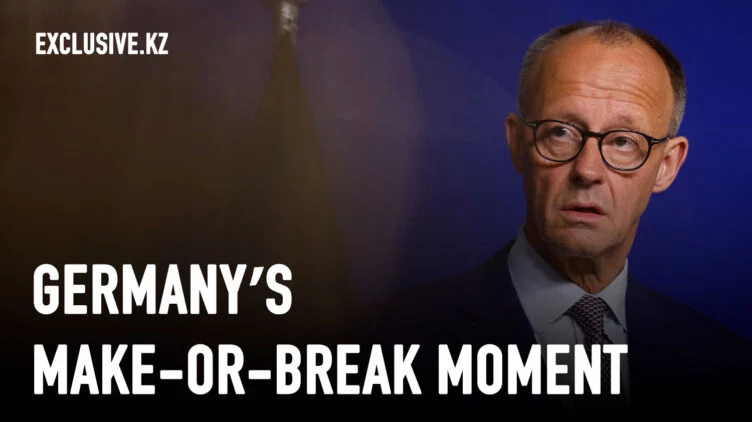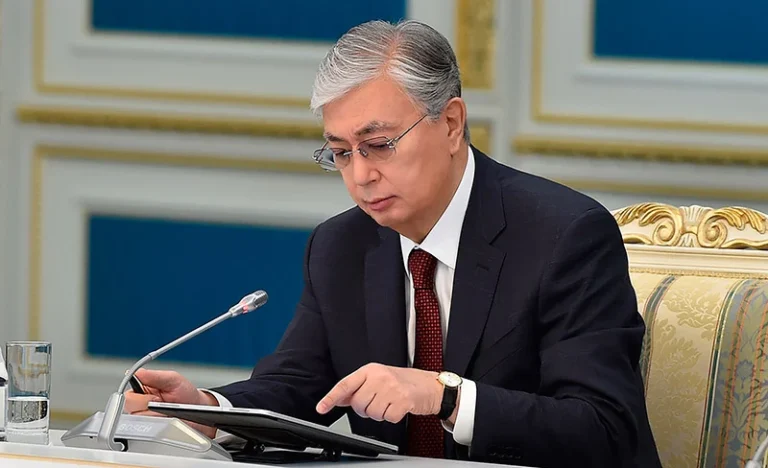How the country should navigate the challenges ahead, both from abroad and from within?

Not since Konrad Adenauer became the first chancellor of the newly established Federal Republic of Germany in 1949 has a German government taken office under such challenging conditions. In the face of global turbulence caused by US President Donald Trump’s tariff moves, and the far-right Alternative für Deutschland’s first lead in a national opinion poll, Friedrich Merz’s Christian Democratic Union (CDU) and the Social Democrats (SPD) recently finalized a coalition deal. While both parties must still ratify the agreement, Merz will likely be sworn in as chancellor in early May.
Merz will have his hands full governing in a changed world. As the West’s unity shows cracks, and the economic principles that long underpinned global commerce and powered Germany’s success are discarded, the German government must step up quickly to protect not only its strategic, economic, and commercial interests, but also those of Europe and other democracies.
The incoming coalition confronts four monumental challenges: a collapsing security environment, aggravated by America’s retreat from global leadership; an economy in decline; an increasingly fragile global order; and rising social and political polarization. Making matters worse, a majority of Germans lack confidence in the incoming government’s capacity to solve the country’s problems.
Fortunately, the coalition has the tools to address all these issues. But the CDU and the SPD must demonstrate their resolve to follow through with fundamental reforms, regardless of the short-term political costs.

Merz was able to surmount the biggest obstacle to serious action – Germany’s “debt brake” – before his government was formed. In a bold move, the CDU and the SPD, supported by the Greens, amended the German constitution to relax its stringent fiscal rules on the size of the federal budget deficit, and adopted a €1 trillion ($1.1 trillion) investment program. This was a paradigm shift for a country that has long made fiscal orthodoxy a cornerstone of public policy, and it gives the new government the budget space to increase spending on defense, infrastructure, research, digitalization, and climate protection.
However, higher spending alone will not address the problems stemming from two consecutive years of economic contraction. The country’s export model is under stress, its competitiveness has declined, and key infrastructure is outdated. Reversing this trend will require the government to spend wisely and with a purpose.
Here, the coalition agreement disappoints, because it does not include reforms to cut red tape, encourage private investment, and prepare Germany for an imminent demographic squeeze. The government also needs to develop a coherent plan for addressing the shortfall in export demand, exacerbated by stronger competition from Chinese products, particularly cars, both in the European Union and in third markets. This problem weighs heavily on Germany’s economic prospects, especially given America’s protectionist turn.
Germany’s dependence on open markets, international value chains, and global stability is reflected in the coalition agreement’s affirmation of the government’s commitment to the rules-based international order and multilateral institutions. It is equally realistic in calling for Europe to find the political will to act on its own. To that end, the new government seeks to strengthen European strategic sovereignty and help develop a “EuroStack” – a pan-EU digital infrastructure that can rival global players. That will require the new Ministry for Digital Affairs to ensure that Germany’s digital transformation supports similar efforts at the EU level.
Likewise, the new coalition explicitly recognizes the country’s systemic rivalry with China and has pledged to apply a stronger “de-risking” strategy. This, too, will require close coordination with the EU and other global partners.
Merz’s coalition thus raises hopes for a stronger and more affirmative EU. Demonstrating a willingness to lead in close cooperation with France and Poland, his government has promised greater flexibility in the enlargement process than those that preceded it, and to enhance EU decision-making capabilities by extending qualified majority voting to foreign and security policy.
Equally promising, the coalition agreement underscores Germany’s support for making EU budgetary allocations conditional on the recipient’s adherence to the rule of law – a clear signal to Hungary that Germany will no longer turn a blind eye to its authoritarian tendencies.
But while the next government has expressed a desire to improve EU governance by avoiding the notorious “German vote,” whereby the country abstains from voting in EU bodies due to internal disagreement, the suggested mechanism needs to be improved to fulfill this promise. As a result, Merz’s government may not have as much of a voice in Brussels as it would like.
Lastly, the incoming coalition must tackle the crisis of confidence that is sapping Germany’s strength. Trust in political institutions and leaders is declining, social cohesion is fraying, and confidence in state capacity is waning. The new leadership should work on reducing the sense of alienation among Germans who feel economically left behind and socially marginalized and, importantly, see migration as a threat – especially with the far right and far left waiting in the wings. The coalition agreement calls for national border checks until management of the EU’s external border is improved, temporarily suspends family reunification for refugees who were given subsidiary protection, and expands the list of safe countries of origin.
Given fears about the resilience of German democracy, Merz’s team is under pressure to improve government efficiency, which is essential to strengthening the legitimacy of the country’s institutions. This is not merely a technocratic task. It requires a wholesale rethink of public policy and a sane debate about how the country should navigate the challenges ahead, both from abroad and, increasingly, from within.
Copyright: Project Syndicate, 2025.





Все комментарии проходят предварительную модерацию редакцией и появляются не сразу.